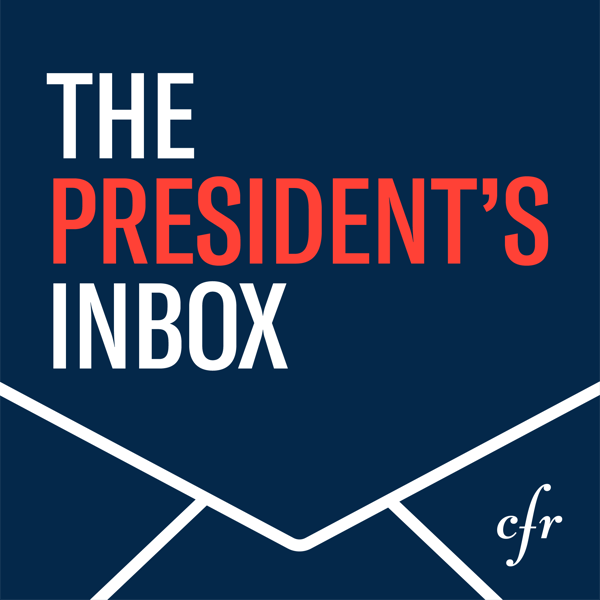A New U.S. Grand Strategy: A Return to Spheres of Influence, With Sarang Shidore
The President’s Inbox
Council on Foreign Relations
4.5 • 698 Ratings
🗓️ 24 June 2025
⏱️ 35 minutes
🧾️ Download transcript
Summary
Transcript
Click on a timestamp to play from that location
| 0:00.0 | Welcome to the President's Inbox. I'm Jim Lindsay, Mary and David Boyes Distinguished Senior Fellow in U.S. foreign policy at the Council on Foreign Relations. |
| 0:12.0 | This week's topic is a return to spheres of influence. |
| 0:30.6 | With me to discuss the concept of spheres of influence and their role in great power politics is Serang Chaudore. |
| 0:34.6 | Serang is director of the Global South program at the Quincy Institute. |
| 0:39.1 | He has written widely on the geopolitics of the global South, |
| 0:45.6 | on Asia, and on climate change, including for media outlets such as foreign affairs, |
| 0:52.0 | foreign policy, and the New York Times. He is the author of the recent foreign policy essay, |
| 0:54.9 | spheres of influence, are not the answer. |
| 0:58.3 | Saurang, thank you very much for joining me on the president's inbox. |
| 0:59.9 | Thank you for having me, Jim. |
| 1:04.9 | I have to say, Sirang, I read your piece in foreign policy, and it really caught my attention, and it made me realize that I have heard more about the concept or the term spheres of influence in the last several months |
| 1:13.9 | than I have since I was in graduate school four decades ago. So for those listeners who have |
| 1:21.2 | never sat through a semester long course on theories of international relations, what exactly is a sphere of influence? |
| 1:29.3 | A sphere of influence is sort of a geographic space. So it's, first of all, defined by geography. |
| 1:37.0 | Typically, it is a practice of great power. Certainly in history, we have seen that. |
| 1:42.9 | And typically a great power, this is not just an action of a great power going off and doing it by itself, but rather in understanding between peer great powers to, let's say, quote unquote, govern a space that neither of them directly have a next or is not a space that is not |
| 2:03.6 | formally a part of these great powers. So these are countries or historically kingdoms that were adjacent |
| 2:10.1 | to or in some sense not very far from that great power. So the idea here is the word influence |
| 2:16.3 | is a little misleading because influence |
| 2:18.4 | sounds very sort of benign and you know you can get influence from different players. But here |
| 2:23.3 | it's really a euphemism for domination. So what we are talking about is great powers having an |
| 2:29.7 | implicit understanding, sometimes explicit in the 19th century, of saying, let's look at this continent |
... |
Please login to see the full transcript.
Disclaimer: The podcast and artwork embedded on this page are from Council on Foreign Relations, and are the property of its owner and not affiliated with or endorsed by Tapesearch.
Generated transcripts are the property of Council on Foreign Relations and are distributed freely under the Fair Use doctrine. Transcripts generated by Tapesearch are not guaranteed to be accurate.
Copyright © Tapesearch 2025.

